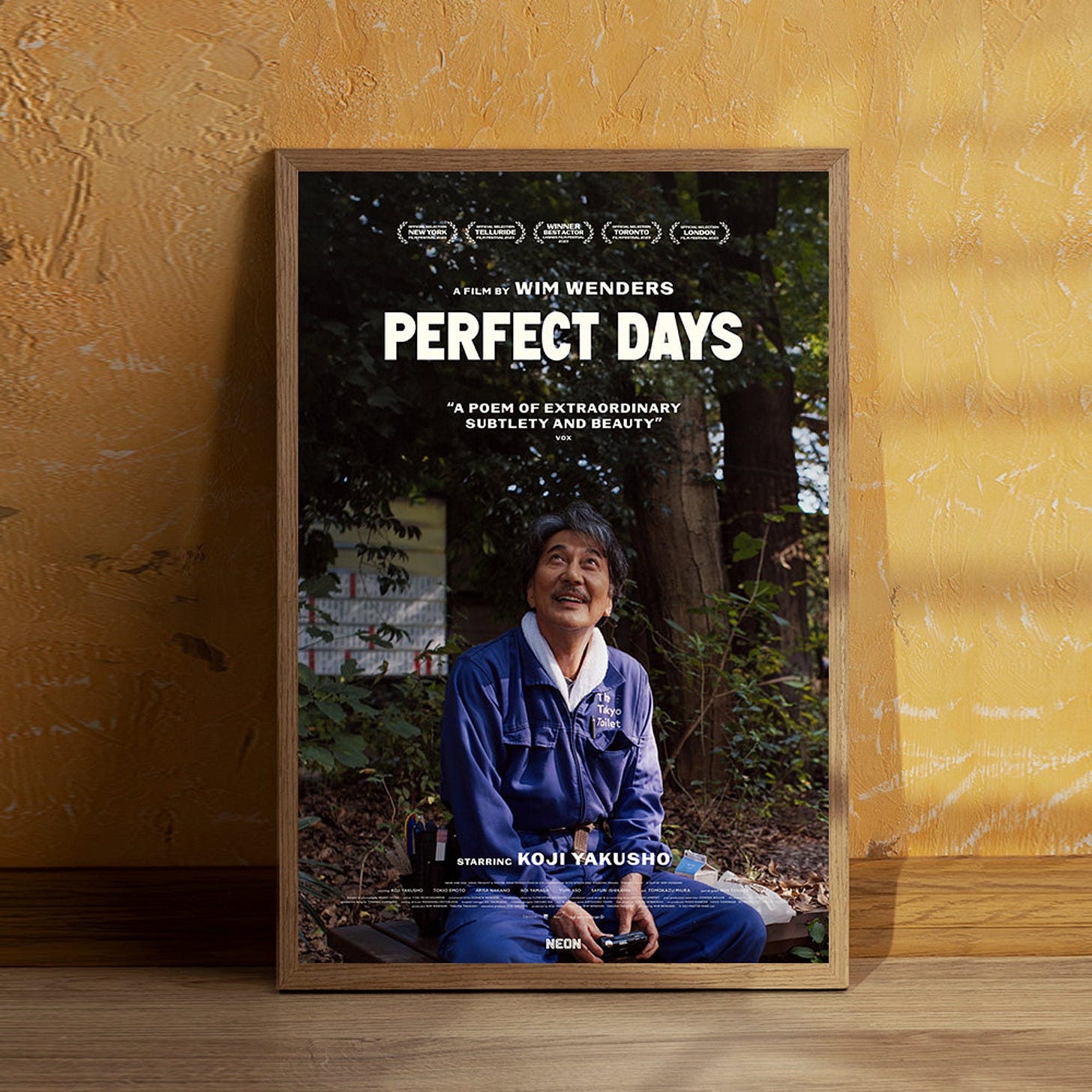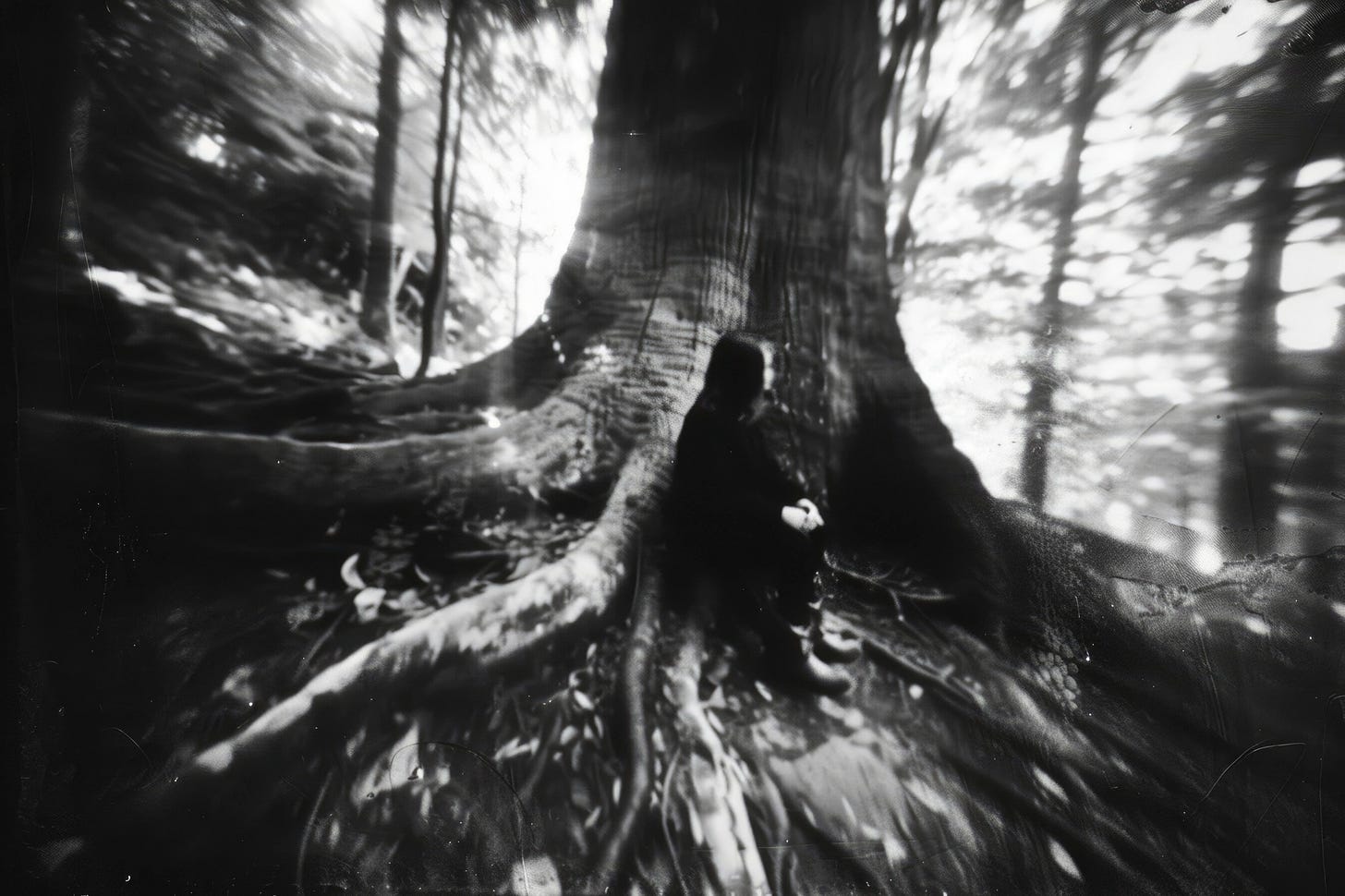Welcome to the 31st issue of the membership newsletter. You can also join the membership plan to receive weekly long-form articles. Recent content includes:
How to Cheer Yourself Up When You Feel Stuck
Food Therapy: A Journey of Culinary Connection
I love summer, yet I rarely write about it while it's here. It's often during the winter that I find myself reflecting on the warmth and vibrancy of those sun-drenched days.
Summers in my childhood were filled with long, carefree school breaks and the mesmerizing sight of sunlight filtering through the leaves, painting the ground with dancing patterns of light and shadow. This interplay of light and breeze, so fresh and alive, whispered of life's boundless energy. There's a beautiful word for it in Japanese: _Komorebi_. It perfectly captures that feeling of being captivated by the sunlight as you sit beneath a tree, lost in the dance of light and shadow. It's as if you've glimpsed something magical, or arrived at a place of quiet understanding.
Summer is a magical season, a time for both concealment and revelation. It's a time to seek refuge in the cool shade of trees, while sunlight plays hide-and-seek through the leaves. But it's also a time to embrace the sun's warmth, to shield yourself with sunglasses and sunscreen and dive headfirst into the ocean's embrace. Summer allows you to find your own rhythm, to retreat when the world feels overwhelming, and to open your arms wide and embrace life's adventures when you're ready.
This duality of summer, this ability to find peace in both stillness and movement, is embodied in the protagonist of the film "Perfect Days." Hirayama, a Tokyo public toilet cleaner, finds solace in the dappled light beneath trees. He even makes it a ritual to photograph these fleeting moments of Komorebi each day, their beauty seeping into his dreams.
"Perfect Days" tells the story of Hirayama, a Tokyo public toilet cleaner. He diligently cleans the toilets, making them as pristine as those in a five-star hotel. He moves between several Tokyo Toilet locations, meticulously and contentedly doing his job.
Years ago, The Nippon Foundation launched a project called "The Tokyo Toilet," aiming to transform the city's public toilets into places that surprise and intrigue everyone. They invited 16 renowned designers, including Tadao Ando, Toyo Ito, and Kengo Kuma, to create 17 uniquely designed public toilets in Shibuya. Interestingly, "Perfect Days" was initially intended to promote these Tokyo toilets, with Wim Wenders directing a short film over a 17-day shooting period. Unexpectedly, it turned into a full-length movie.
The film lacks dramatic conflict. Our protagonist, though a toilet cleaner, loves reading, Western rock classics, and photography. His days are filled with cleaning and a rich spiritual life, until his niece visits him, revealing glimpses of his past. He seems to have been a long-term runaway who chose his current life, contrasting sharply with his niece's brief escape from home. We don't learn the details of his past; the film only hints at his choices.
We get a sense of his artistic inclinations and upper-class background. We don't know what led him to choose his current life of cleaning toilets, but we see that he is well-mannered, mature, and warm-hearted. He seems content with his life, viewing it as "perfect days." Interestingly, the only time he shows negative emotions in the film is when his coworker quits, forcing him to work longer hours. His anger isn't directed at the coworker or the increased workload but at the disruption of his perfect days, leaving him no time to read or soak in the bath.
The film frequently inserts black-and-white dream sequences, often related to Hirayama's daytime experiences. This hazy, ambiguous dream imagery seems to be a favorite of director Wim Wenders, who used similar techniques in his 1991 film "Until the End of the World."
Wenders is an interesting character, a deeply artistic director. Many of his art films are hard for me to watch because they can be overly sentimental. However, his sharper works and profound depictions of cultural desolation are quite good. This time, Wenders is particularly gentle and human, focusing on everyday life. He presents the small details of daily life in a clear way, gradually building emotional energy until the final close-up. Wenders is a Japan enthusiast who has also lived in Lisbon, a traveler who has wandered the world. Now, he refrains from critiquing anything, using a delicate and empathetic approach throughout the film, perhaps a reflection of his long-term expatriate life.
Wenders is also a devoted fan of Yasujirō Ozu, often imitating the master in his films. In 1985, he even made a film called "Tokyo-Ga" about searching for Ozu. The protagonist of "Perfect Days" is named Hirayama, the same name as the protagonist in Ozu's "An Autumn Afternoon." Wenders' film this time is serene and enduring, almost reaching the calmness of Ozu. Perhaps this is the answer he's been seeking for decades.
Wenders has excellent taste in music. Any music lover watching the film will be moved by the scenes accompanied by 70s rock music. Iconic Western rock songs by Van Morrison, The Velvet Underground, The Animals, The Kinks, Nina Simone, Patti Smith, and The Rolling Stones all make appearances, making the viewing experience exhilarating. On reflection, it might seem excessive, but the music is deeply intertwined with the plot. The film ends with Nina Simone's "Feeling Good," with a close-up of the protagonist, played by Koji Yakusho. His eyes brim with tears and laughter, wrinkles covering his face. As time passes, loneliness fades, leaving only his choices and an unregretful journey forward. The lyrics say, "It's a new dawn, it's a new day, it's a new life for me. And I'm feeling good." Yes, choosing the life you want and creating meaning in it, even with tears in your eyes, is a good feeling.
Writer Dong Qizhang once said that if Haruki Murakami hadn't become famous, he might have lived a life similar to Hirayama's—simple and repetitive, with refined tastes. The difference is that Murakami probably wouldn't clean toilets; he might run a small shop, continue listening to music, and write. This perspective is intriguing. Such people do exist in life. Some workers read Heidegger, and truck drivers love singing 90s rock songs. These people are not rare. Their lives are simple and repetitive, with good practices, both materially and spiritually.
Many say the film romanticizes Tokyo life, reflecting Wenders' idealized view of Japan. I see Tokyo as a mere backdrop; such people exist in any city worldwide. They choose such lives and pursue certain spiritual practices, and they are not few. You might call this imagination naive, but such life practices are everywhere. The film isn't about society; it's about real people choosing the lives they want and creating their own meaning.
Others argue that the film romanticizes labor, glorifying menial work. First, we must clarify that in Japan, cleaning toilets doesn't place one at the bottom of society; it's more of a basic job. Second, the film doesn't suggest that all basic laborers must have spiritual lives to be happy. It portrays a specific character or a small subset of laborers who, like us, make a living and have good spiritual practices. Such fortune isn't fabricated; it's real. Any adult living away from home will somewhat relate: maintaining such a life order is challenging, as trivial matters deplete your energy. Anyone with such order and refined tastes in spiritual practices deserves praise, even if they are wealthy and don't need to work. Do you think their energy isn't fragmented by life?
The beauty we see in the film isn't illusory. Good spiritual practices and artistic spirit aren't essential for life, but good material practices alone aren't enough. That's why you feel a sense of beauty when watching such things. There's no need to deny the feeling after watching the film, rationalizing that such sentiments are naive and the artistry is self-indulgent. If you truly think that way, your spiritual practices might never be complete.
People are strange; sometimes, they firmly believe in their feelings, and other times, they repeatedly recall past moments to acknowledge and accept their feelings.
Many people realize the beauty of summer only after it ends, including myself. I rarely write about summer during summer; it's always after the holidays that I think of writing about it, as if only then can I confirm that summer was good.
It's winter here now.
Maybe next summer, I can write like lyrics in First Day by Stefanie Sun: On summer evenings after the rain, I always look forward to the cool breeze.
BTW: I watched several films at this year's Sydney Film Festival. My favorite was "Porcelain War," and last year's favorite was "Afire."(click to read my review) I'll write about this year's favorite soon.
A Brief Parting Question:
Which film do you like this year?
Feel free to express your thoughts in a message, whether it's answering a departing question or just saying hello.
Thank you for reading, and please feel free to share this newsletter with anyone who might enjoy it.
Have a great day!







